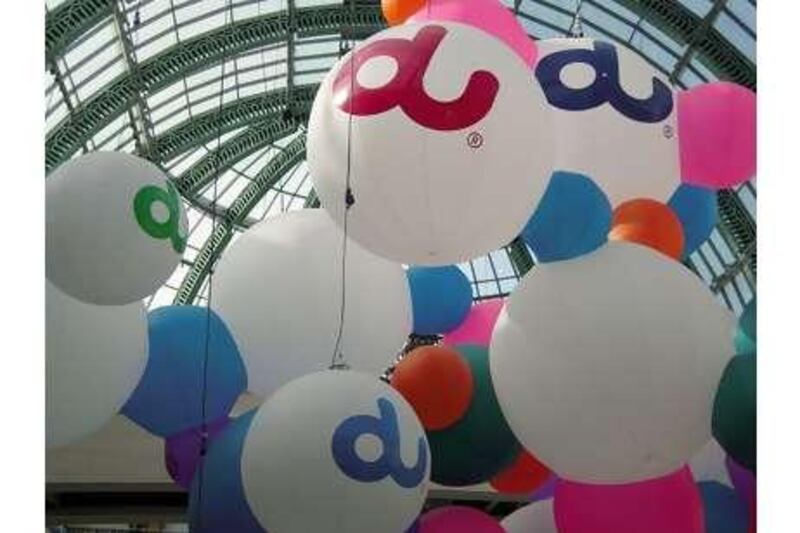The telecommunications operator du is set to gain access to the network of its rival Etisalat within weeks, ushering in a fresh wave of competition in the phone, internet and television market. If the move goes ahead as expected, UAE residents will finally have a choice of telecoms providers regardless of where they live.
Etisalat has a monopoly on traditional telephones, internet service and cable TV throughout most of the country, while du services a small area of Dubai that includes newer neighbourhoods such as Dubai Marina and Media City. "Welcome to competition," Farid Faraidooni, the chief commercial officer for du, said this week. The development will be a boon to du, which has been able to offer UAE consumers only mobile and landline services because of regulatory and technical issues.
"This is going to open up the whole country for us," Mr Faraidooni said. "This is a big opportunity. We are very confident we can acquire a significant market share in the fixed-line business once this becomes sufficiently available to us." Mr Faraidooni did not provide a specific date when the network-sharing agreement would begin but it is understood talks between du, Etisalat and the Telecommunications Regulatory Authority (TRA) have been finalised.
Nasser bin Obood, the acting chief executive of Etisalat, declined to comment and referred any queries on the network sharing to the TRA. Representatives from the TRA declined to comment. The move to create a competitive telecoms landscape began when du started operations in 2007, but had only recently been pushed by the TRA and members of the Federal National Council. The TRA has been in discussions with the two telecoms for months over their differences as to how their networks and revenues would be shared.
A technology called "bitstream" will give du access to Etisalat's network. Bitstream is installed on software and hardware packages to identify when a subscriber of one operator is using the telecoms service provided by the other. Executives from both operators have said that they will initially market their national broadband services with special promotional offerings, such as temporary price cuts and bundled deals designed to attract subscribers.
But analysts said the competition would lead to lower prices in the long term. "There will be price competition," said Matthew Reed, a research analyst with Informa Telecoms and Media. "At the moment, broadband prices are pretty high here and I suspect neither operator would like to get into a fierce price war, but there will be better pricing available to consumers." The two operators have already been competing in the local mobile sector since 2007, with du controlling about a third of the UAE market.
In the first quarter of this year, du gained 266,000 mobile users while Etisalat lost about 30,000 in only the second quarterly subscriber decline in its history. Yesterday, du gave its customers a glimpse of how it plans to compete against Etisalat by cutting the cost of a bundled internet, TV and landline phone promotion by more than 50 per cent next month. Last week, du raised Dh1 billion (US$272.2 million) in funds through a rights issue that will go towards improving its infrastructure and provide a boost to its balance sheet when marketing its new offerings.
People living in the Burj Khalifa were the first in the UAE able to choose their telecoms provider when the building opened in January. The world's tallest tower was used as a pilot project by both operators to test how their networks could be integrated with each other's infrastructure. dgeorgecosh@thenational.ae





